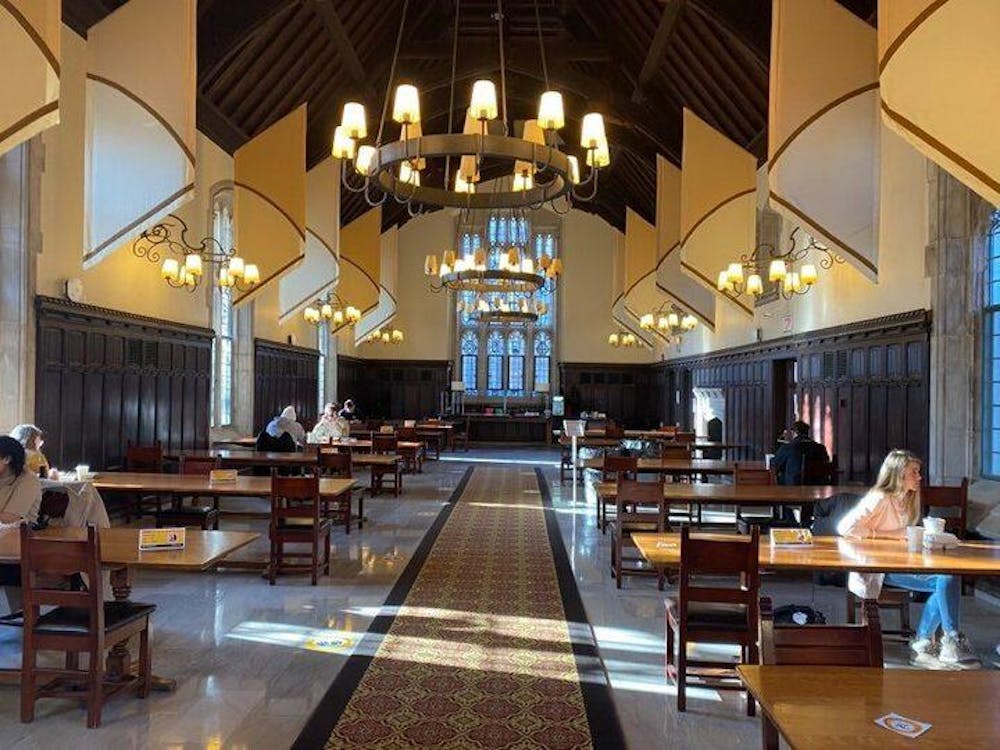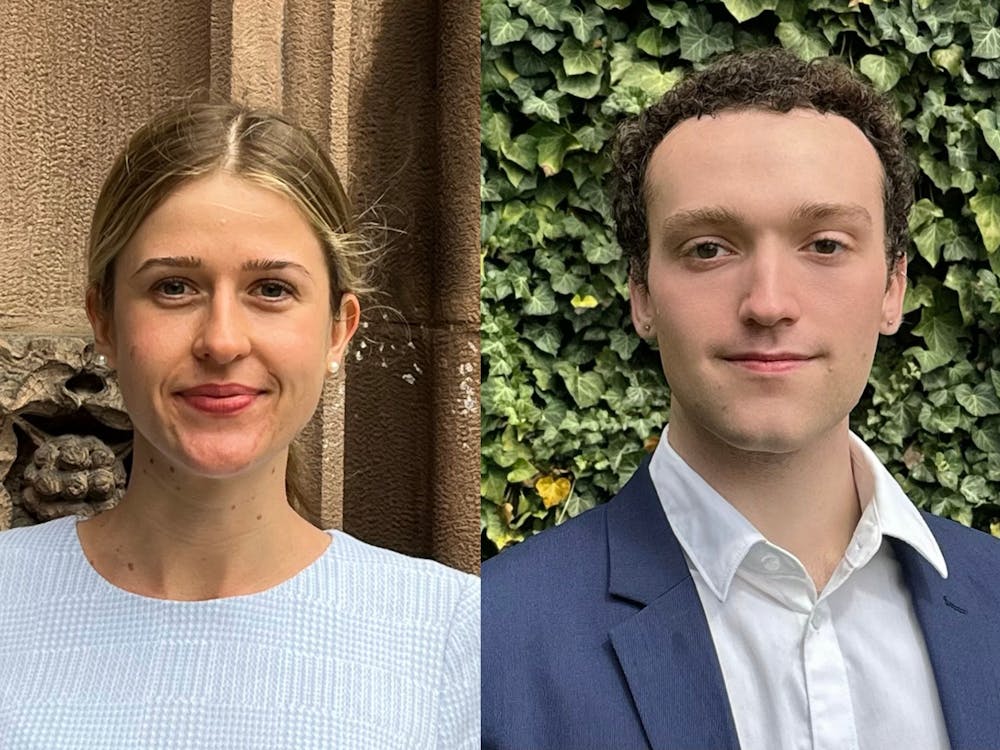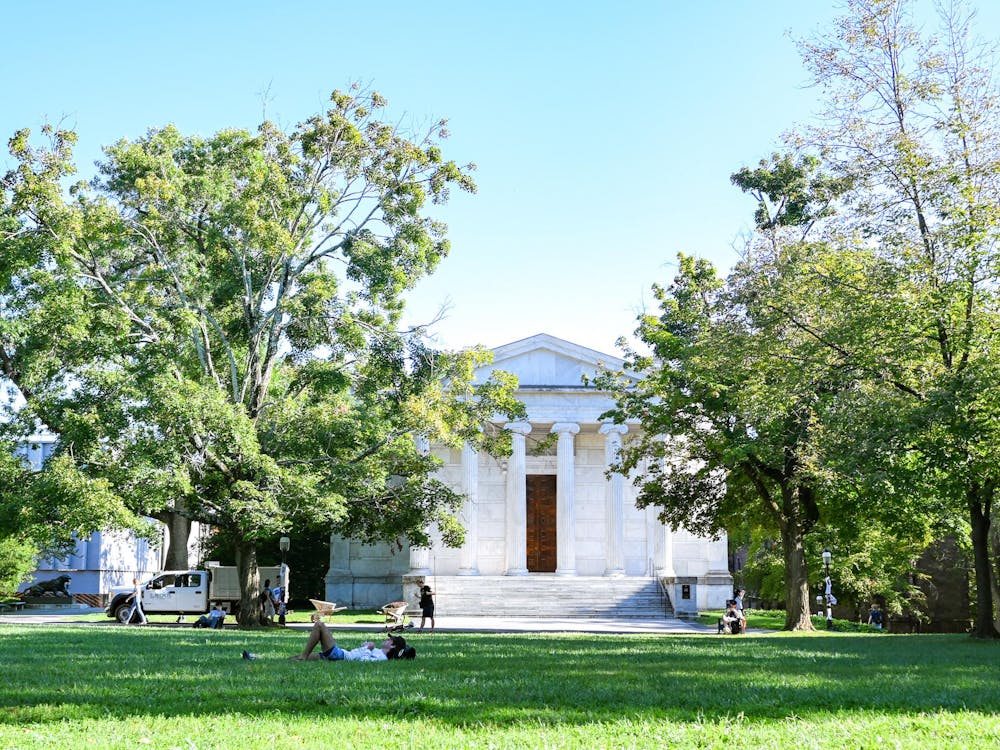There are ways to confront the problem of sexual assault, clinical psychologist Dr. David Lisak said in a lecture on Tuesday.
“The real question isn’t, 'Do you have a problem?' " Lisak said. "It’s, 'Are you confronting the problem?' ”
Sexual assault is by no means a uniquely American problem, Lisak said, noting that the United Statesstands out from other countries in that it has been relatively aggressive in combating the issue of sexual assault.
“The reality is that sexual assault has been pervasive on this planet and in all societies,” Lisak said.
Parents of college-aged children have realized sexual assault happens everywhere and have moved away from questioning if sexual assaults exist on prospective campuses to asking what universities are doing about it, he said. How a university deals with sexual assault is what differentiates one university from another, he said.
“How do you take a system that’s put in place to handle plagiarism and put that same system in place to handle sexual assault?” Lisak said, noting the difficulty in addressing sexual assault on college campuses.
The civilian criminal justice system has also proved incompetent at handling sexual assault cases, he said.
Student activists, however, have quickly altered the landscape of sexual assault prevention and response by using social media, he said.
“One of the problems with sexual violence is, if you’re raped, you don’t want anyone else to know about it and be involved. You want to curl up in a ball in a room somewhere,” Lisak said.
Social media and other new technology can allow student activists’ messages to reach a wide audience of otherwise isolated victims, he explained.
Despite rhetoric about intoxicated offenders, a series of premeditated actions much more commonly leads to sexual assault, Lisak said, noting the prevalence of repeat offenders.
In a 2002 study, Lisak concluded that 91 percent of all rapes are committed by serial rapists.

“We think we know somebody, and the person we know can’t be a terrorist, a bomber, he’s just a friend,” Lisak said. “Most of the time we’re right. Very few people do bad things like this, but the thing is we can easily be tricked like this and we routinely are.”
Studies have estimated that around five percent of college men admit to committing one or more rapes, and three percent of college men are serial offenders, he said.
“To everybody who’s done this research, and there are dozens of us, it’s very clear that these men don’t see this as rape," Lisak said, noting this behavior typically begins in adolescence and continues at college. "They don’t think they’re confessing to something momentous.”
Lisak showed the audience a video of a reenactment of a college rape account that he was told during an interview he conducted at Duke University. In the video, an actor portraying a male student relayed how he and his fraternity brother would target freshman girls at parties, get them drunk on strong punch and then have sex with them.
“When you have a culture where the objectification of other human beings is permitted, you’re going to have a small set of individuals who will take that objectification to the extreme," Lisak said. “Fundamentally, it’s the culture that has to be addressed.”
Being part of the corrective action through education and training is important, Lisak added.
Lisak asked the audience if they thought they had a right to do what they could to stop a guy from driving drunk and if people thought they had responsibility to do so. Many raised their hands. Two decades or so ago, Lisak said, nobody would have raised their hands.
“We’ve changed in literally a generation,” he said.
Lisak said he hoped that people’s attitudes about intervening in sexual assault and sexual violence cases would change like it had for drunk driving cases. It is the individual’s responsibility to protect his or her community and each other, he said.
Bystander training programs can help inculcate that sense of responsibility to the community, Lisak added.
The event took place at8 p.m. in Taylor Auditorium in the Frick Chemistry Laboratory. It was sponsored by Sexual Harassment/Assault Advising, Resources and Education.








